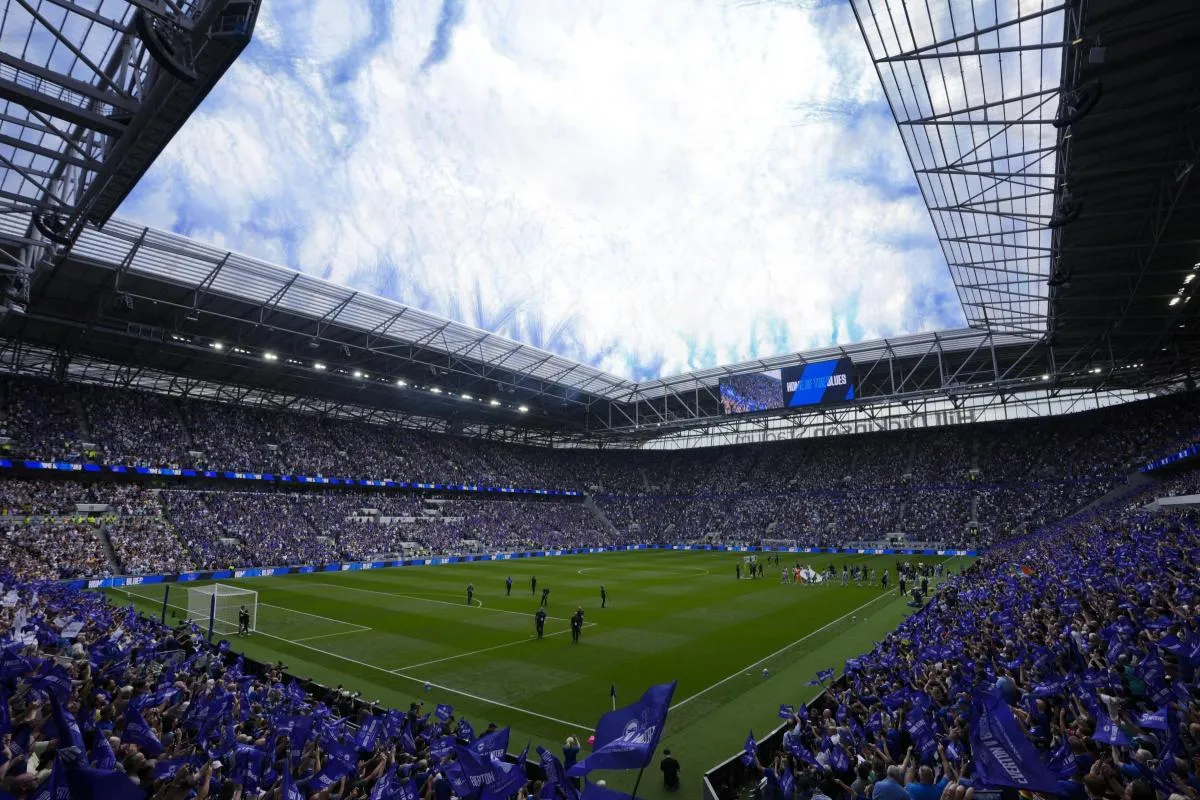Sports
Premier League Finances 2025: Record Sponsorship and Global Reach

The Premier League has entered 2025 in exceptional financial shape, achieving record-breaking revenues through sponsorship deals, broadcasting rights, and global partnerships. With revenues exceeding £7 billion this season, the league continues to stand as the most profitable and widely viewed football competition in the world. Despite inflationary pressures and economic challenges across Europe, the Premier League’s financial model has not only proven resilient but continues to expand its global reach and influence.
This success has been fueled by a combination of innovation, brand strength, and international engagement. Clubs are diversifying their income streams, fans are interacting through digital platforms more than ever, and sponsors are using football as a strategic tool for global visibility. Together, these factors have established the Premier League as both a sports and commercial powerhouse that reflects Britain’s global cultural footprint.
Sponsorship surge and commercial growth
The year 2025 has seen record highs in sponsorship revenues for both the league and individual clubs. Global corporations in finance, technology, and sustainability sectors have intensified their partnerships, viewing the Premier League as an unrivalled avenue for reaching millions of consumers worldwide. Multi-year agreements have become the new standard, with sponsors focusing on brand alignment, social impact, and shared values.
Major clubs such as Manchester United, Chelsea, and Liverpool have secured deals worth hundreds of millions, while smaller clubs have benefited from a more balanced revenue distribution system. Sponsorship categories are evolving rapidly, beyond shirt and sleeve logos, brands now collaborate on stadium naming rights, digital activations, and fan experience programs.
Sustainability has become a defining feature of sponsorship strategy. Energy firms, electric vehicle companies, and climate-focused startups are investing heavily in partnerships that showcase innovation and environmental responsibility. This alignment reflects a broader industry trend where brands and sports institutions pursue shared goals of global relevance and accountability.
Broadcasting rights and digital expansion
The foundation of the Premier League’s financial dominance remains its broadcasting ecosystem. The 2025–2028 media rights cycle has shattered all previous records, generating over £12 billion globally. The new deals highlight a media landscape that is rapidly adapting to digital transformation and changing consumer habits.
In the UK, traditional broadcasters maintain a strong presence, but digital streaming services are capturing a growing share of the audience. Direct-to-consumer models and multi-platform streaming have introduced flexibility, offering fans access through mobile devices, smart TVs, and interactive online platforms. This evolution has allowed the league to engage a younger, tech-savvy audience while maximizing advertising and subscription revenue.
International broadcasting growth has been particularly striking. Strategic partnerships across Asia, Africa, and North America have expanded the league’s reach to new audiences. Tailored commentary, regional fan events, and localized digital campaigns have helped the Premier League build emotional connections with diverse markets. As a result, international viewership continues to outpace domestic audiences, underscoring the league’s unmatched global appeal.
Technological innovation has also transformed the fan experience. Enhanced live coverage, 8K ultra-high-definition broadcasts, and AI-powered analytics have made watching matches more immersive. Viewers now enjoy features such as multi-angle camera access, real-time performance data, and AI-driven highlights. These advances have positioned the Premier League at the forefront of sports entertainment technology.
Financial balance and sustainable growth
Amid record revenues, the Premier League is emphasizing fiscal responsibility to safeguard long-term sustainability. New financial regulations, including stricter spending caps tied to club income, aim to ensure competitive fairness and financial discipline. The goal is to prevent excessive spending while maintaining a dynamic and balanced competition.
Many clubs have adapted to these rules by diversifying income sources. Hospitality experiences, e-commerce platforms, and digital fan memberships have become integral to financial planning. Data analytics play a crucial role in identifying growth opportunities, managing operations, and strengthening fan loyalty. Clubs are also investing in youth academies and local infrastructure to secure future talent pipelines and community support.
The Premier League’s community initiatives have continued to expand, with clubs contributing to grassroots football, education, and health programs across the UK. These investments reinforce the league’s commitment to social responsibility and its role as a unifying force within British society.
Global influence and the road ahead
Beyond its commercial strength, the Premier League serves as a powerful ambassador for British culture and enterprise. Its clubs attract global tourism, drive economic activity, and promote the UK as a destination for innovation and creativity. The league’s continued rise supports the wider British economy through hospitality, technology, and international branding.
Looking forward, the Premier League is expected to deepen its integration of emerging technologies such as virtual reality and augmented fan experiences. Future broadcasting deals are likely to focus on personalization, interactivity, and environmental sustainability. Efforts to maintain financial fairness, competitive integrity, and social impact will define the league’s strategic direction in the coming decade.
Conclusion
The Premier League’s financial success in 2025 highlights the perfect intersection of sport, commerce, and technology. Record sponsorships, cutting-edge broadcasting deals, and a growing global fan base have made it an unmatched model of economic strength and cultural influence.
Yet, behind the numbers lies a broader story of evolution, one that balances profitability with purpose. The league’s commitment to sustainability, digital innovation, and community impact ensures that it remains more than just a football competition; it is a global institution shaping the future of sports and entertainment.
As the world’s attention remains fixed on English football, the Premier League continues to prove that its greatest achievement is not only financial growth but the ability to unite millions through a shared passion that transcends borders.










